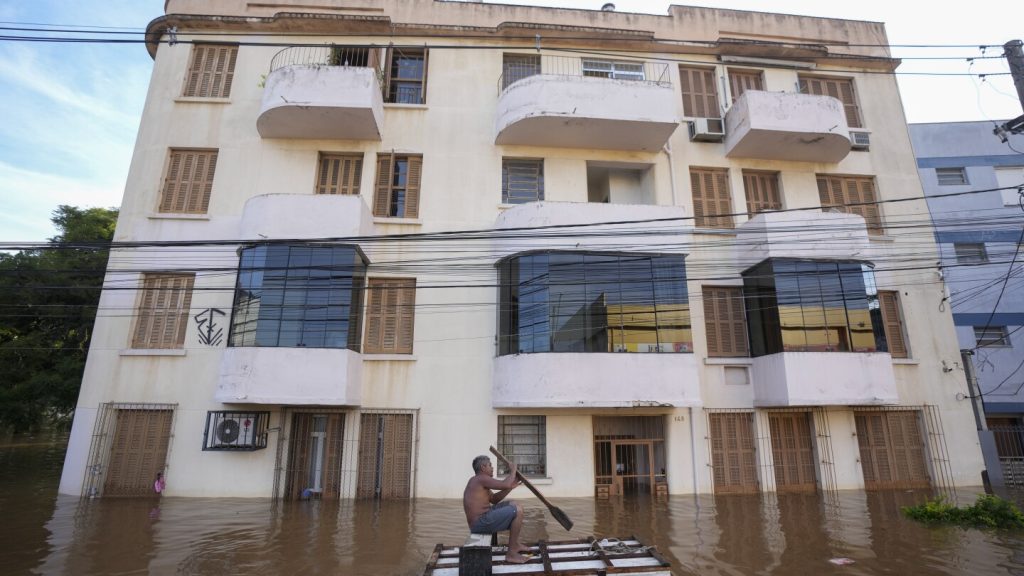Severe flooding in Brazil’s Rio Grande do Sul state has caused unprecedented devastation, impacting local shops, factories, farms, and ranches. The environmental catastrophe has disrupted transportation, closed major highways, and caused blackouts across the state. Governor Eduardo Leite has called for a rebuilding effort akin to a “Marshall Plan,” but a clear strategy to reduce future climate disasters has yet to be determined. The economic fallout is expected to be significant, with forecasts indicating a potential decline in the state’s economy by 2% for the year, which could have broader implications for Brazil’s overall GDP.
The flooding has had a profound impact on various sectors of Rio Grande do Sul’s economy, with the most affected regions being its capital Porto Alegre and the state’s northeast Serra region. The heavy rains have also damaged important industrial areas, such as the vehicle, machinery, and furniture factories, as well as the meat industries in the Rio Pardo and Taquari valleys. The state accounts for a significant portion of Brazil’s agricultural GDP, and the disruption caused by the floods is expected to have long-term effects on economic recovery.
The human toll of the flooding continues to rise, with at least 163 lives lost and many others forced from their homes. The federal government has announced financial assistance for various sectors affected by the floods, but the total cost of rebuilding is expected to increase as water levels remain high. Experts attribute the severity of the flooding to human-driven climate change, with recurring floods in the region highlighting the need for infrastructure investments to mitigate future disasters.
President Luiz Inácio Lula da Silva has signed a law suspending Rio Grande do Sul’s debt repayment for three years to allocate funds for flood recovery efforts. The federal government’s support is crucial for the devastated region, despite concerns about fiscal risks and rising public debt. Long-term solutions to reduce vulnerability to climate disasters, such as building robust flood control systems and relocating homes and businesses away from high-risk areas, will be essential for the state’s resilience in the face of future challenges.
As global climate change intensifies, the need for proactive measures to reduce greenhouse gas emissions becomes increasingly urgent. Experts stress the importance of transitioning to sustainable energy sources and implementing resilience measures to combat the impacts of climate change. The conflicting views between politicians regarding the response to the crisis and reconstruction highlight the challenges of balancing economic concerns with environmental preservation. Addressing climate denialist policies and prioritizing environmental protection will be crucial in preventing future tragedies in Rio Grande do Sul.


